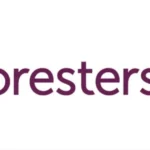Introduction:
“Starting a baking business requires thorough market research, a solid business plan, and securing necessary permits and licenses.“
Starting a baking business means turning your love for baking into a way to earn money. It involves planning, getting the right permits, and setting up your workspace. You also need to decide what types of baked goods to sell and how to attract customers. Creating a business plan and setting up your finances are important steps.
If you are ready to start your baking journey, take the first step today! Research your local market, plan your menu, and get the necessary permits.
By following the right steps, you can turn your passion for baking into a successful and profitable business. From sourcing quality ingredients to marketing your brand, every detail counts in building a thriving baking business.
Market Research and Business Planning

Conducting thorough market research is the first step in starting your baking business. Understand your local market, identify your target audience, and analyze your competitors.
This will help you determine the demand for different types of baked goods and find a unique selling proposition (USP) for your business.
Creating a business plan is essential for outlining your business goals, strategies, and financial projections. Your business plan should include details about your target market, competitive analysis, marketing strategy, operational plan, and financial plan.
A well-crafted business plan is also crucial for securing financing from investors or lenders.
Choosing a Niche in the Baking Industry
Selecting a niche can help you stand out in the competitive baking industry. Whether it’s gluten-free desserts, vegan baked goods, or custom cakes for special occasions, specializing in a specific area can attract a dedicated customer base.
Consider your skills, interests, and market demand when choosing your niche.Focusing on a niche allows you to cater to a specific group of customers and become known for a particular type of product.
This can lead to increased customer loyalty and word-of-mouth referrals. Additionally, having a clear niche can simplify your marketing efforts and help you target your ideal customers more effectively.
Legal Requirements and Permits
Understanding the legal requirements for starting a baking business is crucial. This includes obtaining the necessary permits and licenses, such as a food handler’s permit and a business license.
Check with your local health department for specific regulations related to home-based or commercial baking businesses.Compliance with health and safety standards is essential to avoid legal issues and ensure the safety of your customers.
Regular inspections and adherence to local regulations will help you maintain high standards and build a trustworthy reputation. It’s also wise to consult with a legal expert to ensure all aspects of your business are legally sound.
Setting Up Your Business Structure
Decide on the business structure that best suits your needs. This could be a sole proprietorship, partnership, limited liability company (LLC), or corporation. Each structure has its own legal and tax implications, so it’s important to choose the one that aligns with your business goals and offers the appropriate level of liability protection.
Setting up the right business structure can help protect your personal assets and provide a clear framework for business operations. Consulting with a business attorney or accountant can provide valuable insights into the best structure for your specific situation. This decision will impact how you file taxes, handle liability, and manage the business.
Creating a Business Plan

A comprehensive business plan serves as a roadmap for your baking business. It should outline your business goals, target market, competitive analysis, marketing strategy, operational plan, and financial projections. A well-crafted business plan is also essential for securing financing from investors or lenders.
Your business plan should detail your vision for the business and the steps you will take to achieve it. It should include realistic financial projections, a clear marketing strategy, and an operational plan that outlines how you will produce and deliver your baked goods. This document will not only guide you but also serve as a convincing argument for potential investors.
Finding the Right Location
Choosing the right location for your baking business is critical to its success. Consider factors such as foot traffic, visibility, accessibility, and proximity to your target market. Whether you plan to operate from a home kitchen, a commercial kitchen, or a retail storefront, the location should support your business goals and comply with local zoning laws.
A good location can significantly impact your business’s visibility and customer accessibility. For a retail storefront, high foot traffic areas can drive more walk-in customers, while a commercial kitchen might be more suitable for wholesale or delivery-based businesses. Ensure your location meets all health and safety standards and is convenient for both you and your customers.
Importance of Baking Business
Starting a baking business allows you to turn your passion for baking into a profitable venture. It offers the opportunity to share your culinary creations with the community, build a loyal customer base, and contribute to the local economy. A successful baking business can also provide personal fulfillment and financial independence.
The baking business is a resilient industry with a constant demand for fresh, quality baked goods. It can be a scalable venture, allowing you to start small and expand as your customer base grows. Whether you aim to run a cozy neighborhood bakery or a large-scale production facility, the baking business offers numerous opportunities for growth and success.
Equipping Your Bakery
Investing in the right equipment is essential for running an efficient baking business. This includes ovens, mixers, baking pans, cooling racks, and other essential tools. Depending on your niche, you may also need specialized equipment such as cake decorating tools or bread proofing baskets.
High-quality equipment not only improves your baking efficiency but also enhances the quality of your products. Consider the layout of your kitchen or baking space to ensure smooth workflow and easy access to all necessary tools. Regular maintenance of your equipment is crucial to avoid disruptions in your baking operations.
Sourcing Ingredients and Supplies
Sourcing high-quality ingredients and supplies is crucial for producing delicious baked goods. Establish relationships with reliable suppliers to ensure a steady supply of fresh ingredients. Consider sourcing locally to support local farmers and reduce transportation costs.
Quality ingredients are the foundation of great baking. Whether you’re using organic flour, fresh fruits, or premium chocolate, your choice of ingredients will directly impact the taste and texture of your products. Building strong relationships with suppliers can also lead to better pricing and exclusive access to top-quality ingredients.
Branding and Marketing Your Baking Business

Effective branding and marketing are key to attracting customers to your baking business. Develop a strong brand identity, including a memorable logo and a consistent visual style. Utilize social media, a professional website, and local advertising to promote your business and engage with potential customers.
A well-executed marketing strategy can set your baking business apart from the competition. Use social media platforms to showcase your products, share behind-the-scenes content, and interact with your audience. Engaging marketing campaigns and promotions can increase your visibility and draw more customers to your business.
Developing a Menu and Pricing Strategy
Creating a well-curated menu that showcases your unique offerings is essential. Consider the preferences of your target market and the feasibility of producing each item. Develop a pricing strategy that covers your costs, including ingredients, labor, and overhead, while remaining competitive in the market.
Your menu should reflect your niche and highlight your specialties. Offering a mix of classic favorites and innovative creations can attract a wider customer base. When setting prices, ensure they are competitive yet profitable, and be transparent about any additional costs, such as custom orders or delivery fees.
Hiring and Training Staff
As your baking business grows, you may need to hire and train staff to help with production, sales, and customer service. Look for individuals who are passionate about baking and have the necessary skills. Provide comprehensive training to ensure consistency and quality in your products and services.
A well-trained team can significantly enhance your business operations. Invest time in training your staff on baking techniques, customer service, and safety protocols. Creating a positive and supportive work environment can also improve staff retention and performance, contributing to the overall success of your business.
Managing Finances and Accounting
Effective financial management is crucial for the success of your baking business. Set up a reliable accounting system to track your income, expenses, and profits. Consider hiring an accountant or using accounting software to manage your finances and ensure compliance with tax regulations.
Proper financial management helps you make informed business decisions and ensures your business remains profitable. Regularly reviewing your financial statements can identify areas for cost savings and opportunities for investment. Budgeting and financial planning are essential for long-term sustainability and growth.
Ensuring Quality Control and Food Safety
Maintaining quality control and food safety standards is essential for building a reputable baking business. Implement strict hygiene practices, regular inspections, and quality checks to ensure that your products meet the highest standards. Comply with local health and safety regulations to protect your customers and your business.
High standards of quality and safety build trust with your customers and enhance your business’s reputation. Regularly training your staff on food safety protocols and conducting routine quality assessments can prevent issues before they arise. Adhering to industry standards and regulations also helps you avoid legal complications and ensures the well-being of your customers.
Promoting Your Business and Building Customer Loyalty
Promoting your baking business through various marketing channels is key to attracting and retaining customers. Offer promotions, loyalty programs, and special events to encourage repeat business. Engage with your customers through social media, email newsletters, and community involvement to build a loyal customer base.
Building customer loyalty involves more than just attracting new customers; it requires maintaining strong relationships with existing ones.
Providing excellent customer service, responding to feedback, and consistently delivering high-quality products can foster loyalty and encourage word-of-mouth referrals. Engaging with your community and supporting local events can also enhance your brand’s visibility and reputation.
How to Buy a Car with a Business EIN
Developing an Online Presence

In today’s digital age, having a strong online presence is crucial for any business. Create a professional website showcasing your products, story, and contact information. Use social media platforms like Instagram, Facebook, and Pinterest to share photos of your baked goods, engage with customers, and promote special offers.An online presence allows you to reach a wider audience and attract customers beyond your local area.
Implementing an e-commerce platform on your website can enable customers to place orders online, making it convenient for them and increasing your sales potential. Regularly updating your online content keeps your audience engaged and interested in your business.
Utilizing Social Media and Influencer Marketing
Leveraging social media and influencer marketing can significantly boost your baking business. Collaborate with local influencers or food bloggers to promote your products and reach a broader audience. Share engaging content, such as behind-the-scenes videos, baking tips, and customer testimonials, to create a loyal following.
Social media platforms are powerful tools for building brand awareness and driving customer engagement. By partnering with influencers who resonate with your target market, you can increase your business’s visibility and credibility. Consistent and interactive social media activity helps in building a community around your brand.
Hosting Events and Baking Classes
Hosting events and baking classes can attract customers and establish your baking business as a local favorite. Organize workshops, tastings, and pop-up events to showcase your products and engage with the community. Offering baking classes can also generate additional revenue and position you as an expert in your field.
Events and classes provide an excellent opportunity to connect with your customers on a personal level. They allow potential customers to experience your products firsthand and learn new baking skills, fostering a sense of loyalty and community. These activities also create buzz and word-of-mouth marketing for your business.
Implementing Sustainable Practices

Adopting sustainable practices in your baking business can appeal to environmentally conscious customers. Use eco-friendly packaging, source organic or locally-produced ingredients, and minimize waste through efficient production processes. Highlighting your commitment to sustainability can differentiate your business and attract a dedicated customer base.
Sustainability is increasingly important to consumers, and implementing green practices can enhance your brand’s reputation. Customers are more likely to support businesses that align with their values, and sustainability initiatives can also lead to cost savings in the long run. Communicate your sustainability efforts clearly to your customers to build trust and loyalty.
Expanding Your Product Line
As your baking business grows, consider expanding your product line to cater to a wider audience. Introduce new flavors, seasonal items, or health-conscious options such as gluten-free or low-sugar products. Regularly updating your menu keeps customers excited and encourages repeat business.
Diversifying your product offerings can attract new customers and increase sales. Pay attention to customer feedback and market trends to identify opportunities for new products. Experimenting with different items and incorporating customer suggestions can lead to popular new additions to your menu, driving growth and innovation in your business.
Additional Tips
- Start small and scale up gradually.
- Network with other local businesses.
- Keep track of industry trends.
- Offer seasonal and holiday specials.
- Attend local fairs and markets.
- Collect customer feedback.
- Continuously improve your recipes.
- Invest in professional photography.
- Stay organized and plan ahead.
- Focus on providing excellent customer
Pros and Cons of a Baking Business
| Pros | Cons |
| Creative outlet for your passion | High initial investment |
| Potential for profit growth | Time-consuming process |
| Ability to scale the business | Strict regulations to follow |
| Community engagement opportunities | Seasonal demand fluctuations |
| Flexible business models | Risk of ingredient shortages |
| Personal fulfillment | Competition in the market |
Answers to Key Questions
How Profitable is a Baking Business?
The profitability of a baking business can vary significantly based on factors such as location, target market, pricing strategy, and operational efficiency. Generally, a well-managed baking business can be highly profitable. Key factors influencing profitability include cost control, efficient production, effective marketing, and maintaining high-quality products.
How Do I Start a Successful Baking Business?
A: Starting a successful baking business involves careful planning and execution. Begin with thorough market research to identify your target audience and understand the competition. Develop a comprehensive business plan outlining your goals, strategies, and financial projections.
How Do I Start a Simple Bakery?
A: Starting a simple bakery involves a streamlined approach to get your business up and running efficiently. Begin by deciding on the type of bakery you want to open, whether it’s home-based, online, or a small retail shop. Conduct market research to understand the demand and preferences in your area.
How to Start Baking at Home?
A: Starting to bake at home can be a rewarding way to test and refine your baking skills before launching a full-scale business. Begin by setting up a dedicated baking area in your kitchen with all the necessary equipment, such as an oven, mixer, baking pans, and measuring tools.
Q: What are the initial costs involved in starting a baking business?
A: The initial costs of starting a baking business can vary widely depending on the scale and type of your operation. For a home-based business, expenses may include kitchen equipment, ingredients, packaging, and marketing materials.
Q: How can I attract and retain customers for my baking business?
A: Attracting and retaining customers requires a combination of high-quality products, excellent customer service, and effective marketing. Start by offering a unique and delicious product that stands out in the market. maintain their loyalty over time.
Conclusion
Starting a baking business is an exciting and fulfilling venture for those with a passion for creating delicious baked goods. By following a structured approach, from conducting thorough market research and developing a solid business plan to ensuring legal compliance and effective marketing, you can set the foundation for a successful baking enterprise.
Whether you’re starting small with a home-based operation or planning to open a retail bakery, attention to detail and dedication to quality will be key to your success.
Remember to continually innovate and adapt to market trends, engage with your customers, and prioritize sustainability and efficiency in your operations. Building a strong online presence and leveraging social media can significantly boost your visibility and customer base.










